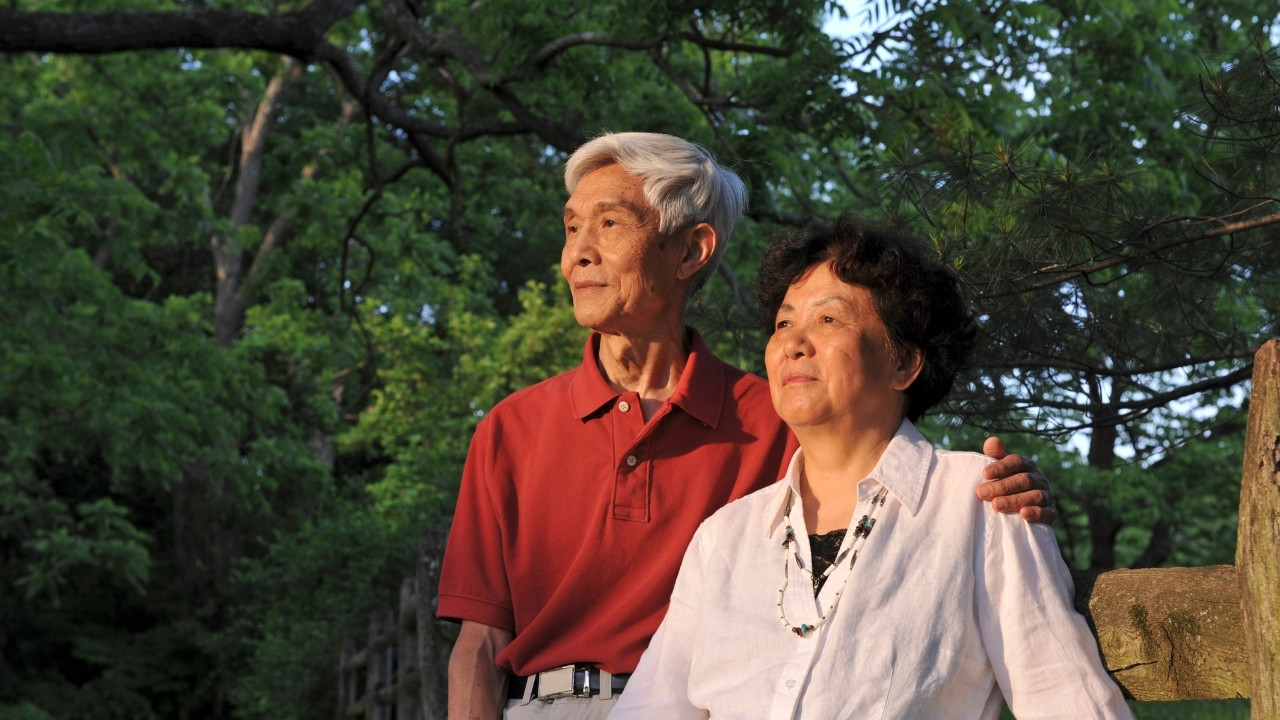By Jessica Wang
Ask any Canadian, and they will likely agree that Canada is one of the most multicultural countries in the world. As an aging nation, Canada’s older adults are also more diverse than any generation before. In fact, my grandparents are part of the approximately thirty percent foreign-born seniors living in Canada. Nonetheless, having seen their struggles as a granddaughter, it breaks my heart when I hear that many immigrant seniors face social isolation and loneliness, especially when they’ve travelled from other parts of the world to find a better life.

So, let me break down the difference between social isolation and loneliness. Social isolation is objective, which concerns the lack of meaningful social contacts and little interaction with others. On the other hand, loneliness is subjective or “perceived social isolation” where individuals may feel lonely even in the presence of others. 2 Immigrant seniors may face cultural differences, language barriers, racism, and decreased income or socioeconomic status, among other risk factors that make social isolation and loneliness more challenging and complex.1
Not to mention, COVID-19 aggravated this issue when most governments in various countries asked older adults and long-term care homes to self-isolate and quarantine, including Canada. Consequently, seniors also shut themselves away from society, and other community members who might act as a risk of infecting them with COVID-19. Among immigrant seniors living in long-term care homes, isolation may be more pronounced given that basic care, translation services, religious services, or culturally appropriate meals provided by friends or family members were suspended. While these restrictions protected older adults most vulnerable to illness and were essential during this crisis, these policies potentially negatively impacted seniors’ mental health through loneliness and social isolation.3
These emotions of loneliness and psychological distress are not just unbearable but also dangerous.2 Social neuroscientists Dr. John Cacioppo and William Patrick, explain that unacknowledged loneliness can fuel further seclusion by creating shame and fear of reaching out. Beyond this, researchers know that loneliness is often in the backdrop of clinical illness diagnoses, contributes to disease and is associated with a greater risk of cardiovascular disease, dementia, depression, and anxiety.2 Immigrant seniors may be less likely to access health services in a timely manner, particularly if language is a limitation or if they have different cultural perspectives on their health. Ultimately, loneliness and social isolation can make coping and healing much more difficult.
Social isolation and loneliness can also be detrimental to seniors socially and economically. Social isolation can lead to poor social skills due to the disuse of communication and interaction with other individuals. Likewise, there are economic impacts as a consequence of social isolation and loneliness.1 Older adults already face barriers to employment; if individuals are not fluent in an official language and have no work experience in Canada, finding work will be even more challenging. Difficulty in finding a job may prolong and encourage the cycle of poverty and social isolation.1
All this to say, psychological distress caused by social isolation and loneliness contributed to decreased quality of life. More research and education are needed to understand the impacts of social isolation on immigrant seniors and how to better support them, especially amid the pandemic. By understanding more about this issue, we may be able to reduce social isolation and loneliness in urban and rural communities, as well as within continuing care settings. Reducing social isolation can prevent health issues, lower health costs, create opportunities for better aging, promote quality of life, and delay the need for higher levels of care like acute and long-term care.
Moving forward, a comprehensive understanding of social isolation and loneliness through more research is vital to create equitable, evidence-based policy, programs, and resources to support the quality of life among older immigrants in Canada and the world. 3 In other words, more research needs to be done on this topic, given that seniors made up twenty-three-point-six percent of its total immigrant Vancouver population in 2016 compared to twenty-point-one percent in 2010.5 Within Canada, the population of visible minorities among seniors has increased from two percent of Canada’s senior population in 1981 to eight-point-one percent in 2011.1 These statistics demonstrate a quickly growing immigrant seniors population in different areas within Canada.
For this reason, a data-driven policy to provide older immigrants with technology and internet access may be impactful in closing a digital divide in Canada and ensuring opportunities to connect with loved ones in other areas of the globe to tackle social isolation and loneliness. Ultimately, the knowledge we can acquire from this research can positively impact all of us through improving social services as we all grow older.
As a Canadian from an immigrant family, I have seen the challenge of social isolation and loneliness firsthand through my grandparents’ lives, making this subject dear to my heart. As a student, I have learned the significant impacts of this issue and desire to share my education. As an individual, it is fundamental for me to support the older adult community in any way I can, which is why I write these paragraphs. Perhaps, through greater research, education, urgency, and empathy, we can better tackle this complex global health and societal concern to ensure a better life for our seniors.
Jessica Wang is a Policy and Research Assistant at BCCPA. She is also currently completing her Bachelors of Science degree at Simon Fraser University in the Faculty of Health Sciences.
End notes
- Canada, Employment and Social Development. “Government of Canada.” Canada.ca. / Gouvernement du Canada, April 20, 2022. https://www.canada.ca/en/employment-social-development/corporate/seniors/forum/social-isolation-immigrant-refugee.html.
- Brown, Brené. “Places We Go When We Long for Connection: Belonging, Fitting in, Connection, Disconnection, Insecurity, Invisibility, Loneliness.” Essay. In Atlas of the Heart. Random House, 2021.
- Johnson, Shanthi, Juanita Bacsu, Tom McIntosh, Bonnie Jeffery, and Nuelle Novik. “Competing Challenges for Immigrant Seniors: Social Isolation and the Pandemic.” Healthcare Management Forum 34, no. 5 (2021): 266–71. https://doi.org/10.1177/08404704211009233.
- “Immigrants Seniors.” Senior Social Isolation, April 15, 2020. https://seniorsocialisolation.ca/immigrants/.
- “Vancouver Immigrant Demographic Profile – NewtoBc.” NewtoBC. Accessed July 22, 2022. https://newtobc.ca/wp-content/uploads/2013/07/Vancouver-Immigrant-Demographic-Profile-2018.pdf.





